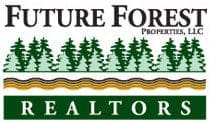Buying hunting land can be a bit tricky. Apart from considering the potential wildlife in the area, there are other important factors to consider before purchasing. Unfortunately, some pervading myths regarding hunting land may confuse you to make a wrong decision, putting your hard-earned money to waste.
With that said, it’s always a good idea to familiarize yourself with these myths. Only by knowing them will you be able to debunk and avoid them at all costs. As with all purchases, making the right decision will give you a worthwhile investment and enable you to save money in the long run:
Myth: Land That Looks Good Is Always Worth Buying
The truth is that not all aesthetic landscapes are applicable for hunting. While it may look scenic and relaxing to you, will it entice wild animals to stay for hunting? You have to consider the natural resources that may or may not attract animals to your property, including food and shelter.
If they have no source of food, water, and other resources, they will not flock to your location. This will all lead to you having a beautiful yet empty piece of land that may very well just end up being an extension of your garden.
Myth: Hunting Land May Only Contain One Type of Prey
Why would you settle for only a single type of prey? Having more choices allows you a variety of options to put on the table, so analyze the property you are about to purchase and check to see if it attracts more than one type of animal.
Four-legged creatures are bountiful in a land with abundant natural sources of food. The more plants and trees there are, the more variety of wildlife you will encounter during your hunting sessions.
Myth: Hunting Land Should Only Have Preys
Always remember that no matter where you’ll hunt, you are not the only predator in town. This is crucial, as having a vast number of predators in your land may result in you having fewer prey to target. You can also opt to hunt the predators, but even that could lead you to limited resources.
If you have a balanced amount of predators and prey, you will hang more resources in the long run. Pick a land that regulates and balances all wildlife so that your target count will also be even.
Myth: Hunting Land Can’t Be Enhanced
People often buy expensive hunting land already thriving with the best food sources, not realizing that they can save more by purchasing land still lacking in those. This may seem counterintuitive until you realize that barren lands can be customized to your liking.
You can still improve their aesthetics, including factors that could attract different types of animals for hunting. Having a lake built, for instance, can help you attract more animals in need of hydration in the heat. These things can’t be done in a land already filled with many—and sometimes unnecessary—features.
Conclusion
Buying good hunting land requires a lot of intuition and observation. Before you agree to any contracts, check if the property has all the things that may attract prey. It should also have balanced wildlife, good sources of food, and options for customization. By having these factors and debunking misconceptions and myths, you are on your way to having unforgettable hunting experiences—especially when you’re running low on resources.
For more tips for buying hunting land, look no further than Future Forest Properties, LLC. We specialize in purchasing and marketing timber tracts and serve those looking to buy or sell hunting and recreational properties. Contact us and let us discuss all your hunting land options.

